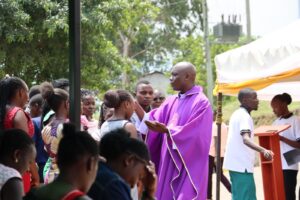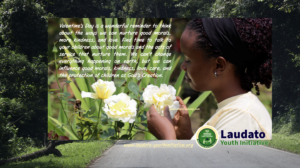By Immaculate Kisembo: Climate change is no longer a distant issue for Uganda. It is a daily reality. From prolonged droughts to floods and shifting agricultural seasons, all of us are facing the impacts of environmental degradation head-on. However, beyond the visible physical damage, there lies an often overlooked dimension: mental health. As young people are going home for holidays many will even grapple with environmental instability, economic uncertainty, as we have witnessed loss of livelihoods tied to climate change and natural Calamities, as for young people in general their psychological well-being is increasingly at risk. Strengthening climate resilience in Uganda must therefore include addressing mental health especially among the youth and women who are at the fore front of most of these challenges.
The Link Between Climate Change and Mental Health
Climate-related disasters such as floods, landslides, and droughts not only destroy property and livelihoods but also lead to anxiety, trauma, and depression. According to the World Health Organization (2022), climate change is a major emerging threat to global mental health, with young people being particularly vulnerable.
In Uganda, a largely agrarian economy, changes in weather patterns have caused increased uncertainty about the future, especially among rural populations. When crops fail or access to water becomes limited, stress levels rise, particularly in communities that lack access to psychological support services (Opiyo et al., 2015). For the youth many of whom are already burdened by unemployment and systemic challenges climate change compounds emotional strain.
Laudato Youth Initiative: Integrating Mental Health in Ecological Action
The Laudato Youth Initiative (LYI), inspired by Laudato Si’, has recognized the critical intersection between mental well-being and ecological action. Our initiative empowers young people not only to care for creation but also to heal from the psychological effects of ecological crises. We know most of the youth access social media so on our platforms, we emphasize hopeful storytelling, and promote gifts like music, and community gatherings, including digital spaces like the “Digital Fireplace,” a program which serves as a space for emotional healing, resilience building, and faith-driven motivation (Laudato Youth Initiative, 2025).
One key message from LYI is that spirituality and mental health are deeply connected in the African context. Youth are encouraged to draw strength from their faith, cultural roots, and community “the Ubuntu” philosopy to cope with climate-related stress. As we mentor young leaders to become advocates for both ecological protection and mental health awareness, equipping them with tools to support their peers emotionally while engaging in environmental activism with an aim of giving hope.
Building Resilience through Community and Faith
Resilience is not just about infrastructure, it’s about people. Studies show that community cohesion, faith-based support, and youth empowerment are critical in helping communities adapt to climate shocks (Nalwanga & Mbonye, 2018). Faith-based organizations and youth initiatives like LYI are uniquely positioned to bridge the gap between climate adaptation and mental health, particularly in rural areas where formal mental health services may be lacking.
Our initiatives such as creating Laudato Si’ Clubs in schools, universities, parishes and dioceses provide safe spaces for dialogue, reflection, and peer support. These clubs also serve as platforms for promoting hope, a crucial antidote to the despair that many young people feel when confronted with the overwhelming nature of the climate crisis.
Its important dear parents, guardians and religious leaders to note note that, addressing climate resilience must go beyond physical adaptation, it must include the mental and emotional well-being of its people, especially the youth. As climate change continues to affect daily life, the need for mental health support becomes ever more urgent. The Laudato Youth Initiative offers a powerful example of how integrating faith, community, and environmental action can foster both mental resilience and ecological responsibility. A sustainable future is not only one that protects the land but also one that nurtures the minds and hearts of those who live on it.
References
Laudato Youth Initiative. (2025). Mental health and ecological action: Healing through community and faith.
Nalwanga, R., & Mbonye, M. (2018). The role of community-based structures in strengthening resilience to climate change in Uganda. African Journal of Environmental Studies, 12(3), 45-58.
Opiyo, F., Wasonga, O., & Nyangito, M. (2015). Measuring household vulnerability to climate-induced stresses in pastoral rangelands of Kenya: Implications for resilience programming. Pastoralism, 5(10).
World Health Organization. (2022). Mental health and climate change: Policy brief.














